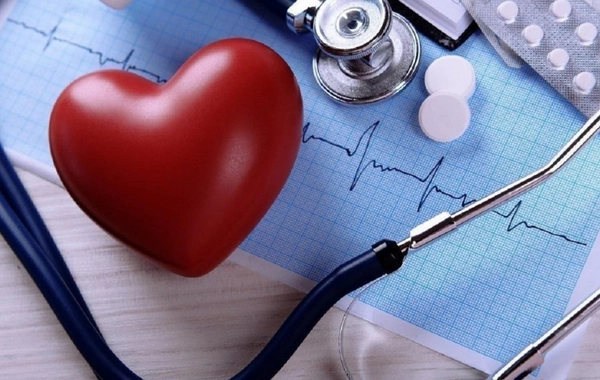Night awakenings can be a warning sign for the heart

Increasingly, doctors and scientists are raising the alarm: habitual night awakenings, which many consider harmless, may be associated with disorders in the cardiovascular system.
New research shows that sudden awakening in the middle of the night is not just a consequence of stress or late-night overeating, but a possible symptom of hidden heart diseases.
What happens to the body during sleep
During sleep, the body switches to recovery mode. The pulse slows down, blood pressure decreases, and the heart gets the necessary rest. However, if a person frequently wakes up at night without an obvious reason, this may be related to the heart not coping with its function - providing sufficient blood circulation and oxygen supply.
Hidden symptoms that we don't notice
Many people don't associate night awakenings with heart conditions. Usually, it's explained by anxiety, insomnia, an uncomfortable pillow, or noise outside the window. However, scientists have found that people with ischemic heart disease, hypertension, or heart failure experience night awakenings much more frequently. Sometimes they are accompanied by shortness of breath, accelerated heartbeat, or sweating - all signs that should not be ignored.
Why this is dangerous
Awakenings disrupt the deep sleep phase, which is especially important for vascular recovery and normalization of blood pressure. Lack of proper sleep leads to an increased risk of heart attacks, strokes, and other dangerous conditions. In addition, chronic sleep deprivation itself is a risk factor for developing hypertension.
What to do if you often wake up at night
If this happens regularly, especially without obvious reasons, it's worth paying attention to your overall health. The first step should be a consultation with a general practitioner or cardiologist. The doctor may prescribe an ECG, blood pressure monitoring, or 24-hour observation of cardiac activity.
It's also useful to keep a sleep diary - recording bedtime, number of awakenings, and general well-being in the morning. This will help identify possible patterns and triggers.
Prevention and heart care
- Avoid overeating and alcohol before bedtime
- Maintain a regular sleep schedule
- Monitor stress levels and physical activity
- Control blood pressure and cholesterol levels
- Undergo medical examinations periodically
Night awakenings are not just an inconvenience but an important signal that deserves attention. Timely measures will help not only improve sleep but also maintain heart health for many years.
Similar News
Named the non-obvious cause of premature heart aging
Untreated obstructive sleep apnea can significantly accelerate aging of the cardiovascular system and increase the risk of premature death. This is the conclusi...




 Azərbaycanca
Azərbaycanca  По-русски
По-русски  English
English 





